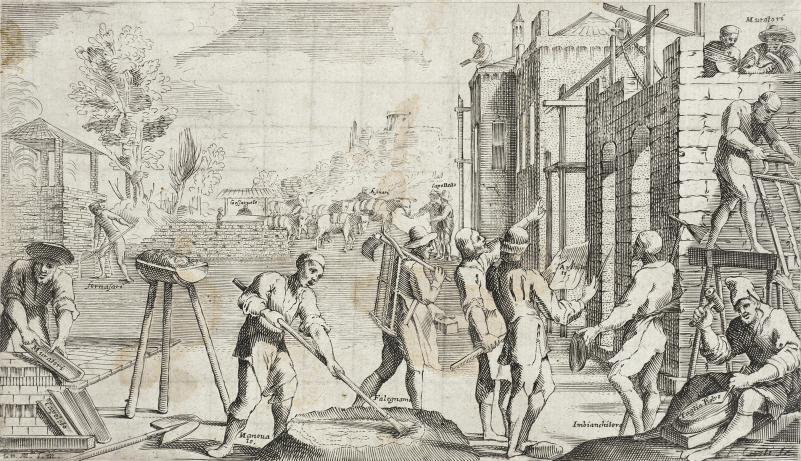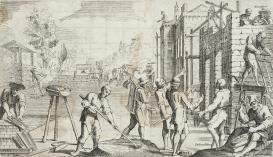Embracing a broad theoretical understanding of space, this working group examines the dynamic conglomeration of practices, materials, social structures, and people integral to the production of early modern architecture. Central to this is an exploration of the different forms and systems of spatial knowledge. The international group is comprised of thirteen scholars, whose individual topics cover areas throughout modern-day Europe, between 1400 and 1850. Topics include:
- The spaces of knowledge production—the formative environments that influenced, resourced and shaped architecture design and creation;
- The translation and transformation of architectural knowledge between practitioners and across geographies;
- How trans-spatial knowledge may be understood in terms of boundary and identity construction;
- The mobility of architects and building practitioners who transmitted knowledge, and who within this process created transcultural knowledge and places;
- The social and political components of trans-spatial knowledge transfer (e.g. investments in labor and resources, modes of communication, logistical systems);
- Architectural practices in which space itself was the object of investigation.
Broadly considered, the working group complements the initiatives of the Max Planck Institute for the History of Science, involving the historical processes by which knowledge has been systemized, and the social, technological, and cultural contexts of knowledge development. More specifically, the working group builds on previous projects undertaken within the Institute’s Department I, including those devoted to the travel of knowledge, the epistemology of space, the history of architectural knowledge, and the structures of practical knowledge.

Plate 6: The Art of Building. From Virtù et arti essercitate in Bologna (c. 1640)

